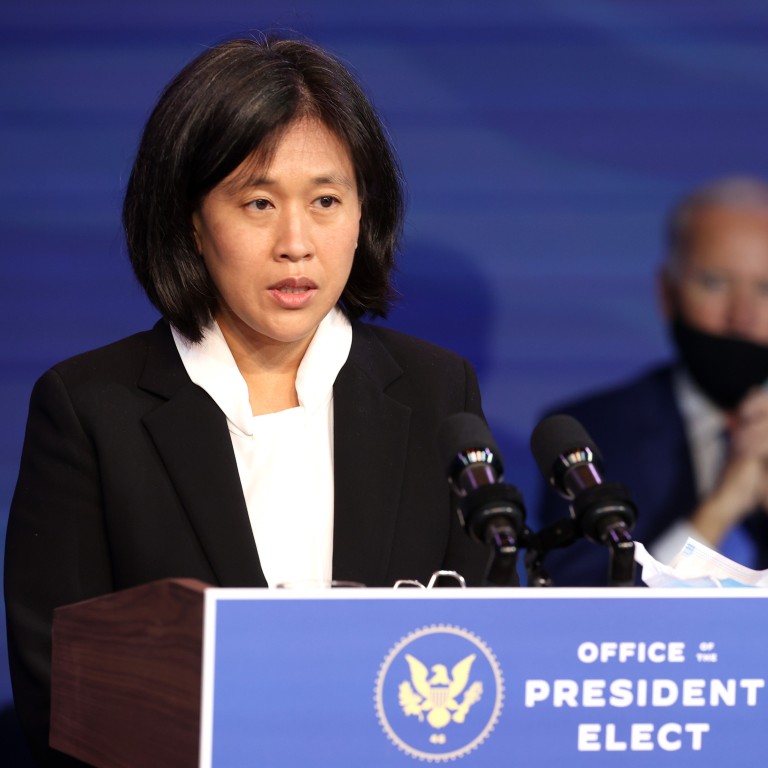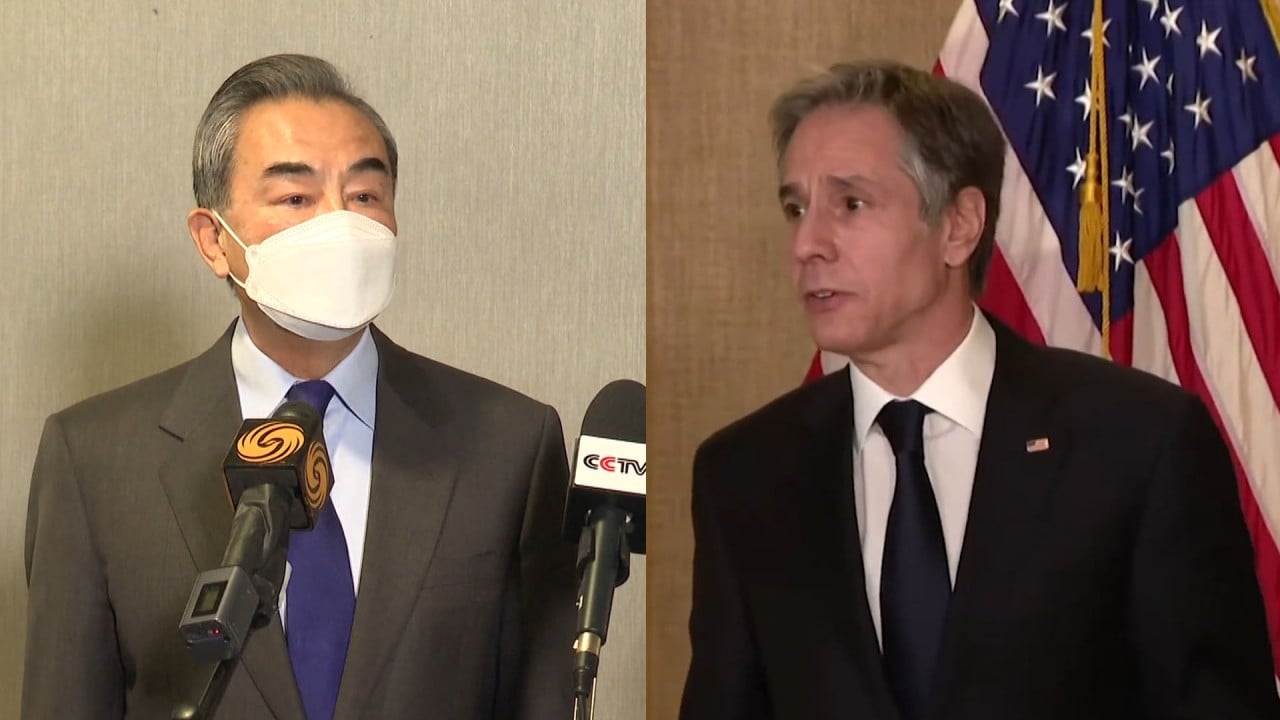
US-China relations: trade chief Katherine Tai lays out hardline approach with ‘world’s leading offender’ label
- Annual National Trade Estimate Report from the Office of the United States Trade Representative vowed to continue battling what it sees as significant trade barriers that are harming American companies and farmers
- It also vowed to work to address Chinese subsidies that have created excess capacities in the steel, aluminium and solar sectors, and could soon affect other industries
The United States government on Wednesday vowed to continue battling what it sees as significant trade barriers that are harming American companies and farmers, and singled out China as the “world’s leading offender” in creating overcapacities in several sectors.
The US Trade Representative’s office (USTR) said its annual report on the issue showed “significant barriers that present major policy challenges with implications for future US growth opportunities, and the fairness of the global economy”.
It said it would engage with foreign governments on various issues that threaten US exporters, including digital policies, agricultural trade barriers and technical barriers.
It also vowed to work to address Chinese subsidies that have created excess capacities in the steel, aluminium and solar sectors, and could soon affect other industries.
China’s state-led approach to the economy and trade makes it the world’s leading offender in creating non-economic capacity
US trading partners have been waiting anxiously to meet with Tai and understand how the Biden administration will shift its trade policies after four years of disruptive tariffs imposed by the administration of former president Donald Trump.
The 570-page National Trade Estimate Report released on Wednesday showed that Washington will continue to challenge China and other countries that impose trade barriers or other regulatory hurdles, and limit access to US companies.
The USTR said it would continue its bilateral and multilateral efforts to address such “harmful trade practices”.
Under the phase one deal, reached under the previous US administration, China has agreed to increase its purchases of US goods and services over two years by at least US$200 billion, in a move that is expected to help reduce the chronic US trade deficit.
Trade talks will take place ‘when the time is right’
China has also agreed to strengthen intellectual property protection and pursue financial services liberalisation, while committing to address allegations of forced technology transfer and currency manipulation to boost exports.
It also raised concerns about data restrictions imposed by India, China, South Korea, Vietnam and Turkey; software requirements in Russia; Indonesian tariffs on digital products; local content requirements in many countries and discriminatory tax measures in Austria, India, Italy, Spain, Turkey and Britain.
It said it would continue to engage foreign governments on policies that complicated the export of US digital products and services, and undermined the ability of US companies to move data across borders.
The report also cited continued concerns in the agricultural arena, including “non-science-based regulatory measures, opaque approval processes for products of agricultural biotechnology, burdensome import licensing and certification requirements, and restrictions on the ability of US producers to use the common names of the products that they produce and export”.
The USTR also said that it is seeking to remove Japanese tariffs and other trade barriers affecting US products, signalling that efforts to increase exports to Japan will continue under the new administration.
While noting that over 90 per cent of US farm exports to Japan are duty-free or receive preferential tariff access under a trade agreement that took effect last year, the USTR maintained in its annual report that “a broad range of barriers” to trade exist.
The US continues to engage closely with the Japanese government “to urge removal” of barriers to US exports, the report said, touching on high tariffs on products such as leather and footwear, a “highly regulated and nontransparent” rice import system and other obstacles that exist in services and investment.
The report on foreign trade barriers also said the US and Japan are meeting regularly to review the implementation of the deal, which took effect in January last year, and to address “outstanding issues.”



